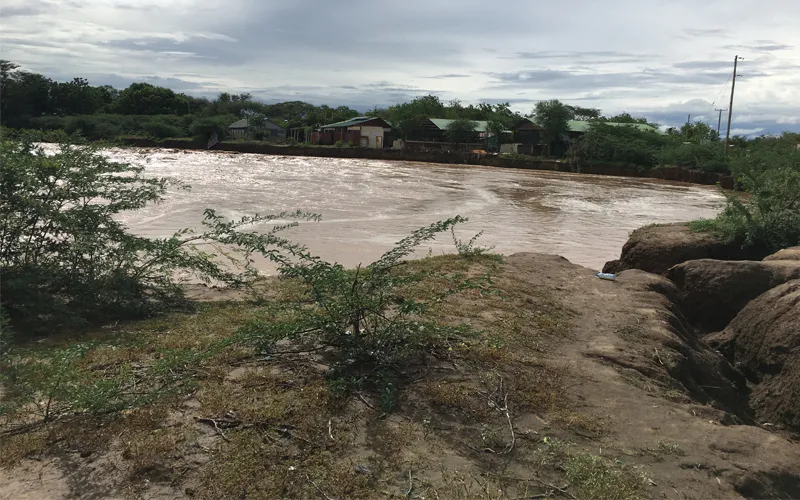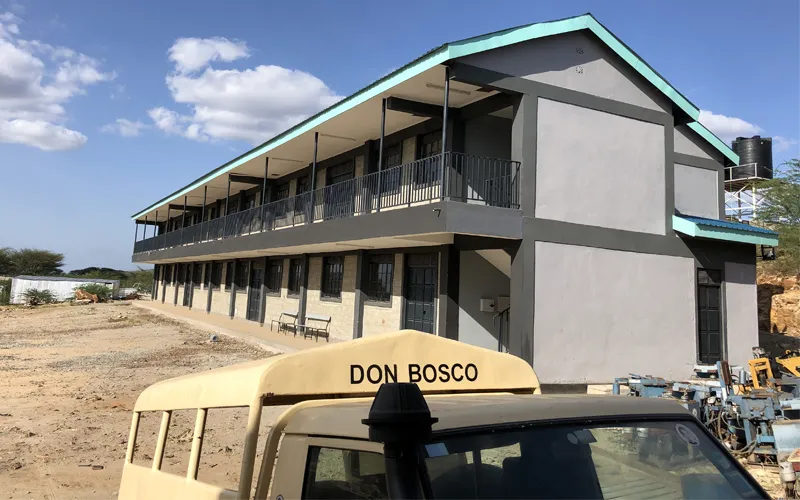Through the four TVET centers dubbed Don Bosco Center 1-4, SDB members ministering there endeavor to empower refugees from different nations with knowledge and skills that help them secure employment opportunities and start small businesses for self-sustainability.
At Don Bosco Centre 1, students receive training in various trades such as motor vehicle mechanic, welding and metal fabrication, carpentry and joinery/cabinet making, tailoring, dressmaking, masonry, plumbing, electrical, secretarial, computer, English language and adult literacy.
Students at Don Bosco Centre 2, which is located in the second section of the camp, major in Agriculture courses such as crop farming, fish farming and other nutrition courses.
Those in Centre 3 receive training in Information Communication Technology (ICT), technical skills electrical and engineering courses and masonry, as well as vocational courses such as English literacy.
Meanwhile, Don Bosco Centre 4, which has three departments – tailoring, computer and English – serves an estimated 700 students per calendar year.
(Story continues below)
According to SDB leadership, Centre 4 which started in April 2016 was in response “to high demand of youth in need of education in Kakuma 3 and cannot walk long distances to seek education at the main Centre in Kakuma 1.”
During the April 7 interview, the Director of DB Kakuma revealed that SDB members have also established Don Bosco Technical Institute in Kakuma town to “ensure inclusion and integration” of the host Turkana community and refugee youth.
“Ever since Don Bosco activities started in 1993, the enrolment for host community youth remained minimal as much as the opportunities for admission were the same as that of refugees,” Fr. Padinjareparampil, a Priest since April 1991, told ACI Africa.
He explained, “The reason behind low enrolment of host community youth was the long distance (about six kilometers) from the Kakuma town and its environs to the Don Bosco Centers in camp.”
In the assessment of the Salesian missionary, the DB Technical Institute “is already meeting (its) objectives as enrolment for host community youth has increased from less than 10 students annually to 100 and above as of 2021.”
The Institute, Fr. Padinjareparampil noted, “also has a great impact on the Turkana community as Don Bosco (members) working in the church are able to contribute to the Diocese of Lodwar initiatives in vocational training to the youth,”.
“We have great hope that this institution can serve the youth from our various Parishes of the Diocese, which covers the whole of Turkana County and Technical skills development activities require greater attention,” he said.
In a separate interview, the Administrator of the Institute, Fr. Erick Owuor told ACI Africa that phased infrastructural developments at the entity are still ongoing.
Two phases have already been completed with the support of two Germany-based entities, that is, the German Society for International Cooperation (GIZ) and the Federal Ministry for Economic Cooperation and Development (BMZ), Fr. Owuor further said.
He added that the 300-student population institution that began in 2018 offers both professional courses such as Certified Public Accountants (CPA) and Accounting Technicians Diploma (ATD) as well as technical courses like masonry, welding, and motor vehicle mechanics among others.
Beyond their apostolate within Kakuma Refugee Camp, members of the St. John Bosco-founded Religious Institute are also looking ahead to a longer-term engagement in Turkana through the Technical Institute “without necessarily depending on the existence or not of the camp,” Fr. Padinjareparampil told ACI Africa.
“Skilled youth who can engage in gainful employment is a need of the hour and Don Bosco Technical Institute is the place for that,” the SDB member said during the April 7 interview, and added, “Together with Don Bosco, the youth of Turkana can dream of a better future.”









